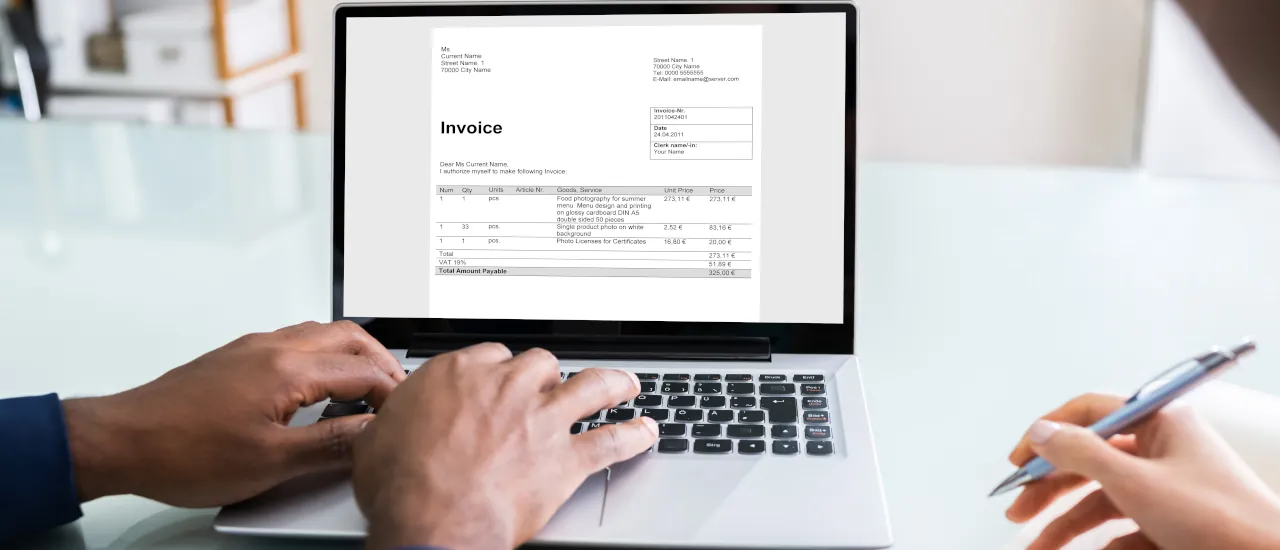
E-invoice Germany: Mandatory for businesses subject to VAT in Germany from 2025
The federal government has made it mandatory to create and receive electronic invoices from 2025. This affects all businesses subject to VAT in Germany. The Ecovis experts briefly explain what needs to be considered.
What are e-invoices?
E-invoices are invoices in a specific, legally regulated data format. A PDF file is not considered an e-invoice. This means that every business must meet the technical requirements to be able to issue and receive e-invoices by 2025. The new regulation only provides for the exchange of e-invoices between business partners. It is not a clearing procedure.
Who must receive and issue e-invoices?
The new regulation affects:
- Companies that have their headquarters, their management or a permanent establishment generating revenue in Germany or
- Entrepreneurs who have their domicile or habitual residence in Germany
An e-invoice must be issued for sales to domestic businesses. There are exceptions for small-value invoices, travel tickets and tax-free sales (according to Section 4 Nos. 8 to 29 of the VAT Act) (UStG).
We can support you in the short-term implementation of e-invoicing, with which you can expect efficiency gains in the future.Marion Dechant, Tax Advisor, ECOVIS Wirtschaftstreuhand GmbH
Auditors, Munich, Germany
What are the deadlines?
There are temporary transitional regulations. Paper and PDF invoices will be allowed up to and including 2026. For 2027, this will only apply if the issuing business did not achieve revenues of more than EUR 800,000 in 2026 (within the meaning of Section 19, Paragraph 3 UStG). In addition, there is a special transitional regulation for PDF invoices using the EDI process.
Although there are transitional regulations and exceptions for issuing them, every business must be able to receive and process e-invoices from 2025. This applies regardless of whether the business already issues e-invoices itself. The decisive factor is what the supplier does. Businesses must identify themselves as such when purchasing. Only then the supplier can issue a proper e-invoice and the buyer will be permitted to deduct input tax.
For further information please contact:
Marion Dechant, Tax Advisor, ECOVIS Wirtschaftstreuhand GmbH
Auditors, Munich, Germany
Email: marion.dechant@ecovis.com
Contact us:
Marion Dechant
ECOVIS Wirtschaftstreuhand GmbH Wirtschaftsprüfungsgesellschaft
Christoph-Rapparini-Bogen 2780639 Munich
Phone: +49 89 5898-2000
www.ecovis.com/muenchen


